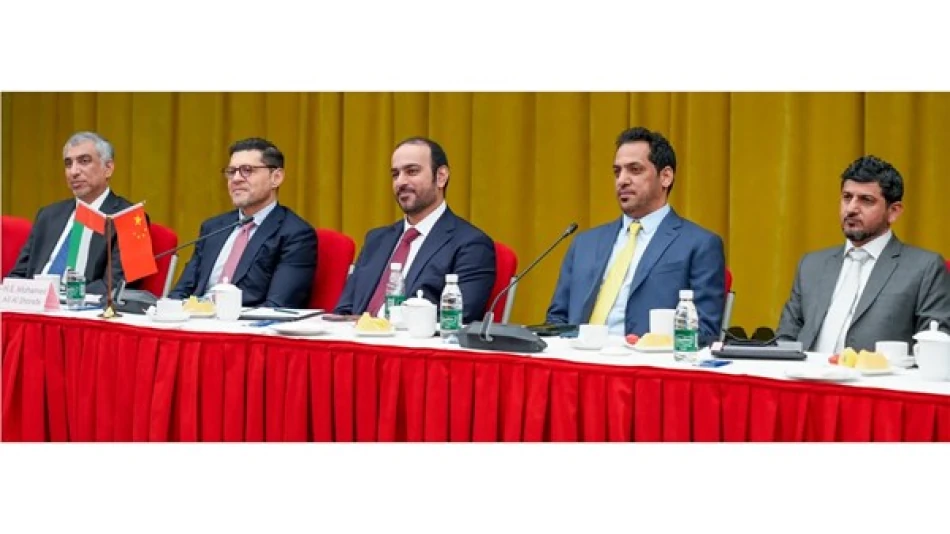
Abu Dhabi Delegation Explores Urban Innovation and Municipal Cooperation in Shanghai and Hangzhou
A senior Abu Dhabi government delegation just wrapped up an official visit to Shanghai and Hangzhou, exploring how China's urban planning innovations could shape the emirate's future development. The trip focused on sustainable construction, AI-powered city management, and heritage preservation - areas where both regions are pushing new boundaries.
Mohammed Ali Al Shorafa, chairman of Abu Dhabi's Department of Municipalities and Transport, led the delegation alongside housing authority chief Hamad Hareb Al Mehairi and other senior officials. Their mission was clear: learn from China's rapid urban transformation while finding solutions that fit Abu Dhabi's unique needs.
The timing makes sense. Abu Dhabi is in the middle of major urban expansion projects, from new residential districts to infrastructure upgrades. China's cities have tackled similar challenges at massive scale over the past two decades, making them natural partners for knowledge sharing.
In Shanghai, the delegation met with Deputy Mayor Zhang Xiaohong to discuss strategic municipal cooperation. They toured the historic Bund waterfront and the renovated Rockbund heritage district to see how the city balances preservation with modernization - something Abu Dhabi faces with its own heritage sites.
But the real focus was on cutting-edge technology. At Shanghai's AI center, they examined how artificial intelligence manages energy storage systems across the city. The team also visited Zevo Technology, which uses 3D printing to build bridges and public facilities with 60% recycled materials. This kind of sustainable construction could help Abu Dhabi meet its climate goals while managing building costs.
One standout innovation was the "Sponge Cities" program developed by Richsand Technology. The system uses desert sand and porous materials to capture and reuse rainwater - particularly relevant for water-scarce regions like the UAE. The technology turns urban areas into giant sponges that absorb rainfall instead of letting it flood streets or flow into storm drains.
In Hangzhou, discussions centered on AI-powered urban planning systems that can simulate different development scenarios before construction begins. The city's planning hall showcased integrated models that help officials optimize land use and plan infrastructure upgrades while preserving historical neighborhoods.
Al Shorafa emphasized that the visit aligns with Abu Dhabi's goal of creating urban environments that improve daily life quality. "Through the meetings and field visits in Shanghai and Hangzhou, we gained valuable insights that will guide our next steps in Abu Dhabi to develop interconnected neighborhoods and distinguished services," he said.
For investors and developers, this kind of government-to-government cooperation often signals upcoming policy changes or new project opportunities. Abu Dhabi's interest in China's urban technologies suggests the emirate may soon introduce similar systems, potentially creating demand for related infrastructure and services.
The visit also reflects broader UAE-China economic ties, which have grown significantly in recent years. China is now the UAE's largest trading partner, and cooperation in urban planning adds another layer to this relationship beyond energy and logistics.
Most Viewed News

 Layla Al Mansoori
Layla Al Mansoori






